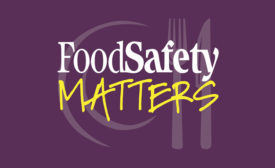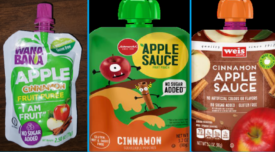FDA
The U.S. Food and Drug Administration (FDA) is responsible for regulating about 80 percent of the U.S. food supply, encompassing all foods and food ingredients introduced into or offered for sale in interstate commerce, except for meat, poultry, certain processed egg products, and catfish, which are regulated by the U.S. Department of Agriculture (USDA).
ARTICLES
Outbreaks of Foodborne Illnesses and Recalls Associated With Ice Cream and Frozen Dessert Products
Reports in the literature indicate that ice cream has been associated with illnesses linked to numerous pathogens, including Listeria, which can cause severe illness
Brett Weed M.P.H., M.S.
Karunya Manikonda M.P.H.
Allison Wellman M.P.H.
Greg Gharst Ph.D.
Matthew Doyle D.V.M., M.P.H.
Amanda Conrad M.P.H.
Alexandra Palacios M.P.H.
Melanie LaGrossa M.P.H.
Stelios Viazis Ph.D.
July 1, 2024
Can the Outbreak Investigation System be Improved?
The process that separates hazards from risks is ensuring that the most important things always get done, and done well
June 24, 2024
EVENTS
Webinar
7/13/23 to 7/13/24
Contact: Vania Halabou
Achieve Sanitation Effectiveness with a Robust EMP
Webinar
9/6/23 to 9/6/24
Contact: Vania Halabou
FDA's Food Traceability Rule: Going Beyond Regulatory Compliance with Ambient IoT
Webinar
10/19/23 to 10/19/24
Contact: Vania Halabou
Beat the Recall: Effective Allergen Control in Food Manufacturing
Webinar
12/12/23 to 12/12/24
Contact: Vania Halabou
Safely Serving All: Allergen Control and Response in Retail Foodservice
Webinar
4/9/24 to 4/9/25
Contact: Vania Halabou
The Ultimate FSMA 204 Playbook: Integrating Traceability, Quality, and Food Safety
Sponsored Webinar
7/25/24 to 7/25/25
Contact: Vania Halabou
How Rapid Development of Technology Has Revolutionized Food Safety
Never miss the latest news and trends driving the food safety industry
eNewsletter | Website | eMagazine
JOIN TODAY!Copyright ©2024. All Rights Reserved BNP Media.
Design, CMS, Hosting & Web Development :: ePublishing









